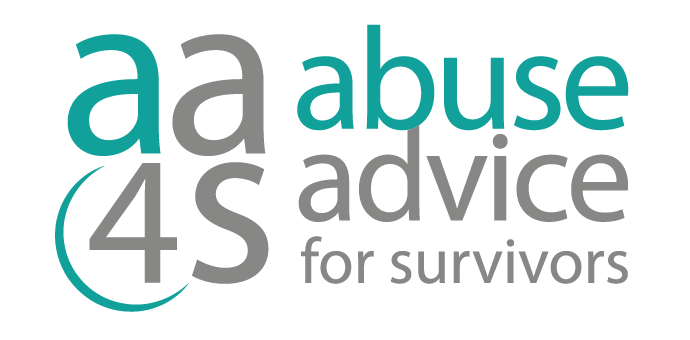
The Government has launched a consultation, the deadline for which is 10th July 2024, to which I will be responding on behalf of ACAL (Association of Child Abuse Lawyers) The summary states, to quote
This consultation paper seeks views on options for the reform of the law of limitation in child sexual abuse cases in England and Wales.
Specifically, it considers the recommendation by the Independent Inquiry into Child Sexual Abuse (‘the Inquiry’) on limitation law.
It also examines the law of limitation in child sexual abuse cases in other jurisdictions examined by the Inquiry and seeks views on options, other than removal of the limitation period, for reform of limitation law in child sexual abuse cases.
The Independent Inquiry into Child Sexual Abuse in its final report, published in October 2022 made 20 recommendations, including the abolition of the time delay, or limitation rules in child sexual abuse cases. It said:-
Recommendation 15: Limitation
IICSA Final Report October 2022
The UK government should change the law to remove the time limit for victims and survivors of child sexual abuse to make a legal claim for compensation. These provisions should apply whether or not the current three-year period has already started to run or has expired, except where claims have been dismissed by a court or settled by agreement. The right to a fair trial should be expressly protected.
These changes should not apply to claims brought on behalf of the estates of victims and survivors.
The Home Office published its response to the Report in May 2023. In relation to Limitation it said:-
We accept the critical issue this recommendation seeks to remedy and we will consult on strengthening existing judicial guidance in child sexual abuse cases and set out options to reform limitation law in child sexual abuse cases
Home Office Response No.15 May 2023
I gave quite a lot of evidence on the subject to the Reparations & Accountability Module of the Inquiry on behalf of ACAL (Association of Child Abuse Lawyers) in 2019. Indeed one can read my evidence here. Also of importance is the evidence of my colleague Richard Scorer here
Why is the Time Delay/Limitation rule so unfair in child abuse cases?
There is no better way than quoting Lady Baroness Hale in the case of A v Hoare when she said
“Until the 1970s people were reluctant to believe that child sexual abuse took place at all. Now we know only too well that it does. But it remains hard to protect children from it. This is because the perpetrators are so often people in authority over the victims, sometimes people whom the victims love and trust. These perpetrators have many ways, some subtle and some not so subtle, of making their victims keep quiet about what they have suffered. The abuse itself is the reason why so many victims do not come forward until years after the event. This presents a challenge to a legal system which resists stale claims.”[
A v Hoare [2008] UKHL 6, [2008] 1 AC 844 para 54
In other words, limitation (the legal word for time delay) is like a double whammy. When a child is abused, particularly by someone in a position of power over them such as a residential care worker or sports coach, they are led to believe that it is normal, and the way “men together behave because they enjoy it and it is natural”. They are also threatened with dire consequences should they ever tell anyone about it, to their families in particular. Some of them try to complain and are rebuffed as liars, typical of children in the care system. Sometimes violence accompanies the abuse. Because attempts to keep the abuse a secret are employed by the criminal, the abuser, no legal system should aid and abet the continuance of the silence.
So, the child tells no one because they have been threatened by their abuser as part of the crime. They obey, and run out of legal time to do anything about it in the civil courts (the age of 21). Years later – sometimes over 30 years later – they attempt to seek justice through the civil courts because, say, their abuser is dead or too ill to stand trial, so they turn to the civil courts for some type of redress. This is where the second part of the whammy comes in. They are told that they are too late and “out of time”. It is no longer possible for the Defendant to have a fair trial. This is the same Defendant who turned a blind eye to the abuse when it was going on, and ignored his complaints that he was being abused by Mr X.
The effect on the victim of abuse, who distrusts authority because someone in trust abused him as a child, is to assume that this is yet another example of the authorities silencing him and a further cover up. They often think that we, their lawyers, are part of the conspiracy, and that we simply do not believe them.
One must break off here to emphasise that this rule only applies to the civil system of compensation, not criminal law. So here is the dichotomy. At criminal law there is no time limit, and child abusers can be, and have been prosecuted into their 90’s. The Criminal Courts rarely entertain arguments that there can no longer be a fair trial of old criminal cases, but at civil law any victim of abuse, in common with other personal injury claimants, must issue legal proceedings before their 21st birthday.
So, if one perpetuates a system that forbids stale claims from coming to trial even before the truth of the abuse has been tried by the Court, it is a grave insult to a victim of abuse, who so ardently want justice and their right to be believed – justice. It also, indirectly, encourages abusers to continue to threaten victims with dire consequences if they ever tell anyone what has happened to them. If their efforts at silence are successful, they are indirectly benefiting the employer who so successfully employed the cover-up, from having to pay compensation to the victim many years later. How unfair is that?
What is wrong with the existing law?
The law is contained in the Limitation Act 1980, which was originally enacted to correct the previous unfairness in the law relating to Industrial Disease cases such as asbestosis, and mesothelioma. In those days child abuse cases, and the length of time it takes for victims/survivors to be able to make a disclosure, was unknown to judges or legislators. So the issues peculiar to child sexual abuse cases were not catered for in the legislation, which frankly is not fit for present purposes some 45 years later.
The Judges in the House of Lords in the case of A v. Hoare (2008) had to bend and twist the law so as to adapt it to the rigours of child abuse cases. In doing so they had to pull it into shapes it was not designed for. The inevitable conclusion is therefore that it needs to be amended radically.
Section 14 of the Limitation Act provides an exception to the time limit of the age of 21 if the Claimant does not have the necessary knowledge to make a claim. The Hoare case, however, made the test wholly objective. In other words, the Court disregards entirely what the individual Claimant thinks and feels in favour of “the reasonable victim of child abuse”, as if there is such a thing.
Solicitors have to ask sensitive victims of abuse why they have not come forward earlier. The answer usually is that they were not aware that it was possible. We then have to tell them that ignorance of the law is no excuse. They do not take well to the criticism, unsurprisingly. A better answer which we can work with is that their mental health was too fragile to permit a civil action.
Section 33 of the Limitation Act provides the Judges with guidelines designed to permit them to allow claims out of time. It is described, however, as an exceptional indulgence, and the burden of proof is on the Claimant not the Defendant. There are five guidelines, including, helpfully in abuse cases, the “disability of the Plaintiff”. This allows the Judge to consider psychological trauma and disorders such as PTSD.
Unhelpfully, however, it also allows the Court to criticise the Claimant, and his solicitors for not advancing the case quickly enough. This sets up division, and conflict between the survivor of abuse and his lawyers. The Section asks whether the Claimant has “got on with it” once he knows, or has been advised that he has a claim.
The effect of the Section, however, requires the Court to minutely examine the Claimant’s life, and question, at each stage where objectively he could or should have come forward. The effect of this is that we, as investigative solicitors, have to ask the same question over and over again. It is insulting to the client, and causes conflict.
For example in the case of Murray v Devenish (2018), the judge had to decide if the Claimant was right to wait until after his mother died to start his claim. This is quite common amongst victims of abuse, particularly where parents have spent large amounts of money on private education where the abuse occurs, but was not accepted in the instant case.
The Case for Change in the Law
The Law Commission looked at the very same problem in 2001, but their recommendations were not accepted. At that time, however, the law was in a much different state than it is now. Let us hope that this consultation is not simply rebuffed by government and allowed to gather dust.
In evidence during the Accountability & Reparations Module of IICSA, Counsel to the Enquiry, Peter Skelton put to the witnesses several alternatives:
- Replace the existing 3 year time limit, expiring at the age of 21 with a 20 year time limit. It was generally agreed that although this would extend the period of time within which claims had to be brought, it would produce yet another arbitrary time limit, which would create unfairness to anyone who ended up on the wrong side of the limit.
- Abolish the period all together – in Scotland the limitation period has been removed. Scotland’s Limitation (Childhood Abuse) (Scotland) Act 2017 provides that in non-recent child sexual abuse civil cases, the Defendant is allowed to argue sufficient prejudice that a fair trial is no longer possible or that they would be substantially prejudiced by the retrospective application of the legislation.
- If the limitation period is removed, should there be the right on the part of the defendant to argue that a fair trial is not possible? Here, opinions differed, with some saying that that Human Rights legislation compelled the legislature to provide this right (Article 6 Right to a Fair Trial). At the moment, the burden is on the claimant to show that a case should be allowed to proceed out of time. There seemed to be agreement that if such a right is to be preserved the burden should be on the defendant. Others argued, however, that if you introduced this right into legislation, you would replace one technical argument with another, and end up with a worse mess than exists at present. Experience in Scotland has shown that defendants are already exploiting this provision and defeating cases on Limitation grounds.
- Opinions differed upon how legislation allowing the defendant to apply for a case not to be allowed to proceed should be phrased. The adjective “impossible” was suggested and debated ie the Defendant could only succeed if he could show that a fair trial would be “impossible”, which is more draconian than the Scotland model.
- Which cases should the legislation apply to? Although legislation is not retrospective generally, in Scotland the law change is retrospective. Logically it has to look back to a certain extent, otherwise it would not take effect for at least 21 years from now. In Scotland one cannot pursue a case which took place before September 1964, but one can pursue previously unsuccessful cases, so should the new law include previously unsuccessful cases? The IICSA recommendation suggests that it will not apply to unsuccessful cases, previously settled cases, or claims on behalf of deceased survivors.
- Should the new law be extended to all types of child abuse ie physical, sexual, and emotional? IICSA only applied to claims of childhood sexual abuse, and the consultation is so limited. In Scotland, however, all types of abuse are covered ie physical and emotional as well.
- The government representative at the hearing was concerned that there may be other equally deserving groups who were not being provided with the same exception, and that a consultation would be the way forward
I have already attended an event in the Houses of Parliament, organised by the Survivor’s Trust in conjunction with Professor Jay when there was frustration that government consultations were even necessary after so much time and money had been spent on the Inquiry, and that the recommendations of the Inquiry had not all been adopted by the Home Office. Let us hope that the much needed changes to the law are brought into force.
For help on any aspect of this article, or, indeed, any aspect of abuse cases, please contact us by filling in our form.



